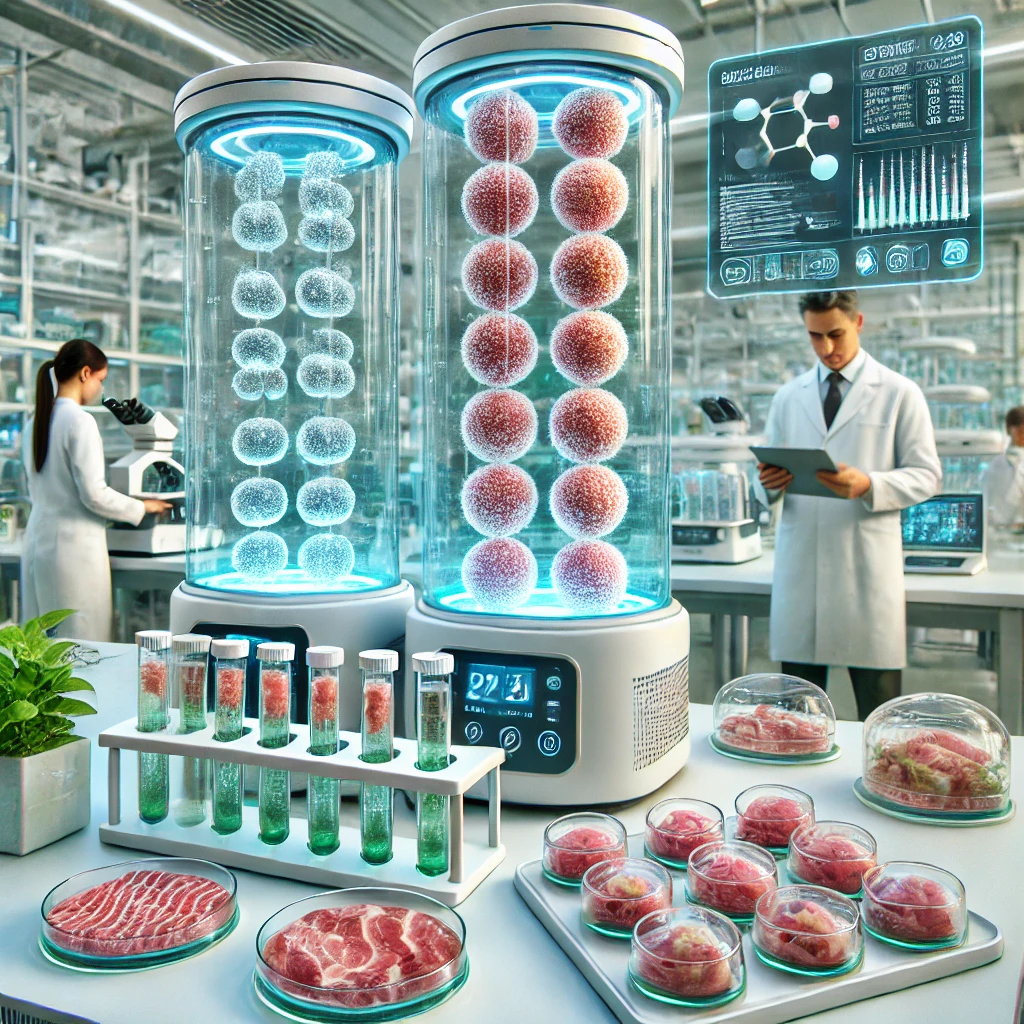The cultured meat market was valued at USD 272.4 million in 2023 and is expected to soar to USD 6,169.6 million by 2034, growing at a compound annual growth rate (CAGR) of 33.3% between 2028 and 2034. This rapid expansion is driven by a combination of critical global trends. Rising concerns over sustainability, environmental degradation, and animal welfare are pushing both consumers and investors to seek out alternative protein sources. Cultured meat presents a sustainable and ethical solution, significantly reducing the use of land, water, and livestock. Technological advancements in biotechnology and cell culture methods are also improving production efficiency and lowering costs. Furthermore, strong investment activity and strategic partnerships—especially from leading food industry players and innovative startups—are accelerating research and development efforts. These initiatives are enhancing product quality in terms of taste and texture, positioning cultured meat as a transformative force in the future of food.

Top Cultured Meat Companies:
- Mosa Meat (Netherlands)
- UPSIDE FOODS (US)
- Eat Just Inc. (US)
- IntegriCulture Inc (Japan)
- Mewery (Czech Republic)
- BioCraft, Inc. (US)
- Finless Foods (US)
- Avant Meats (China)
- BlueNalu (US)
- Fork & Good (US)
Download PDF Brochure: https://www.marketsandmarkets.com/pdfdownloadNew.asp?id=204524444
Mosa Meat (Netherlands): Mosa Meat is a pioneer in the cultured meat sector, credited with creating the world’s first lab-grown hamburger in 2013. Based in Maastricht, the company focuses on producing beef directly from animal cells, without the need to raise and slaughter animals. Mosa Meat has made significant progress in scaling up its production technology and reducing costs, aiming for regulatory approval and market entry in Europe. Their approach emphasizes sustainability, animal welfare, and food security.
UPSIDE Foods (US): Formerly known as Memphis Meats, UPSIDE Foods is one of the most well-known names in the U.S. cultured meat industry. Headquartered in California, the company has developed a range of cultured meat products, starting with chicken. It was one of the first companies to receive a “No Questions” letter from the FDA, signaling a key regulatory milestone in the U.S. market. UPSIDE Foods is focusing on scaling production and building commercial facilities to meet future demand.
Eat Just Inc. (US): Eat Just, known for its plant-based egg products, also has a cultivated meat division branded as GOOD Meat. It was the first company in the world to receive regulatory approval to sell cultured meat (chicken) in Singapore in 2020. Eat Just continues to expand production capabilities and seeks additional approvals in other global markets. The company integrates its cultivated meat offerings with a broader mission of food innovation and sustainability.
IntegriCulture Inc. (Japan): IntegriCulture is a Japanese biotechnology startup developing cellular agriculture technology, with a particular focus on democratizing access to cultured meat production through its CulNet System. This proprietary platform allows for decentralized production and is intended to reduce the costs of cultured meat. IntegriCulture is working on a range of products, including foie gras and meat, and is part of Japan’s growing interest in food tech and sustainable protein sources.
Request Sample Pages: https://www.marketsandmarkets.com/requestsampleNew.asp?id=204524444
Mewery (Czech Republic): Mewery is an emerging European cultured meat startup based in the Czech Republic. It focuses on pork production using a unique process that combines animal cells with microalgae-based scaffolding, which could enhance sustainability and nutritional value. As one of the few cultured meat companies in Central and Eastern Europe, Mewery is positioning itself to serve both local and broader European markets.
BioCraft, Inc. (US): BioCraft is a U.S.-based biotech company previously known as Because Animals. It focuses on cultured meat for the pet food industry. By producing meat-based nutrition without harming animals, BioCraft aims to revolutionize pet food with a sustainable, ethical alternative. This niche market helps circumvent human food regulations and serves as an entry point into broader cell-agriculture applications.
Finless Foods (US): Finless Foods is an American startup specializing in cultivated seafood, particularly bluefin tuna. The company is addressing the sustainability and ethical concerns of conventional fishing and aquaculture. With pilot production underway, Finless is also developing plant-based seafood products to support market entry while working toward regulatory approval for its cultured tuna.
Make an Inquiry: https://www.marketsandmarkets.com/Enquiry_Before_BuyingNew.asp?id=204524444
Avant Meats (China): Avant Meats is a Hong Kong-based company focused on cultured fish and seafood, including maw and sea bass. It is one of Asia’s leading cultivated meat firms and aims to provide culturally relevant products to Chinese and Southeast Asian markets. Avant Meats recently expanded its pilot production and is working on partnerships to accelerate the commercial launch.
BlueNalu (US): BlueNalu is a U.S. company that produces cell-cultured seafood, with a focus on high-value species such as mahi-mahi and tuna. Based in San Diego, BlueNalu aims to create a global supply chain for cultured seafood that is sustainable, scalable, and free from oceanic contaminants. The company has partnerships with major food and distribution firms and is preparing for regulatory approval and commercial launch.
Fork & Good (US): Fork & Good is a newer player in the cultured meat industry, focusing on pork production. Based in the U.S., the company’s strategy revolves around making cultured meat affordable and accessible, targeting high-efficiency bioprocessing methods. Fork & Good’s emphasis is on solving the scalability challenge that currently limits broader market adoption of cultured meat.
